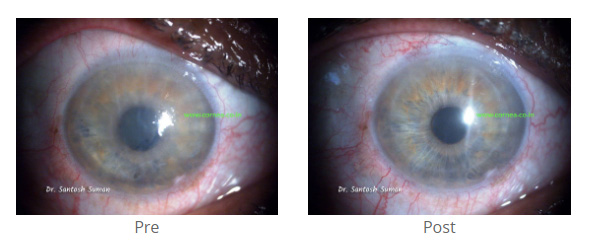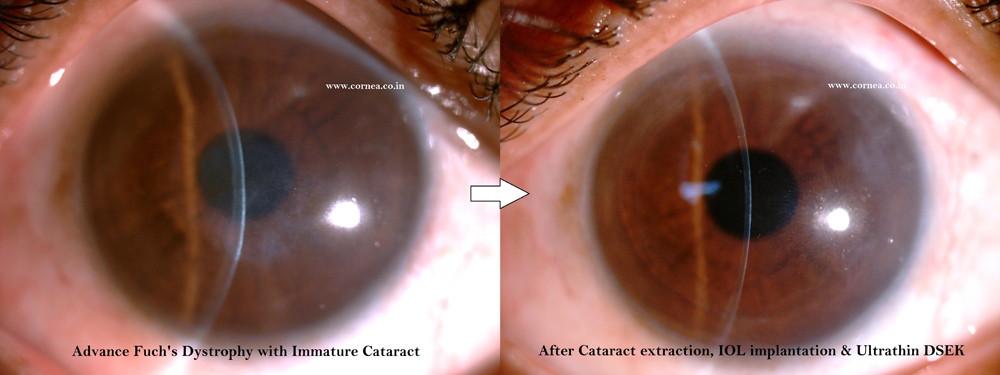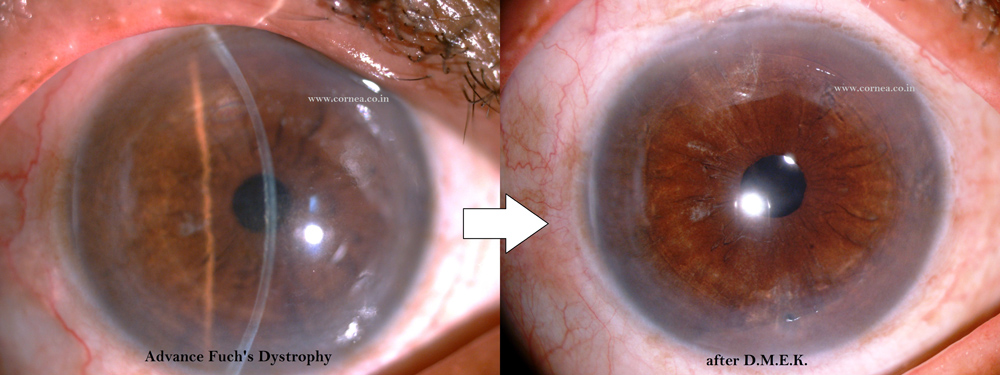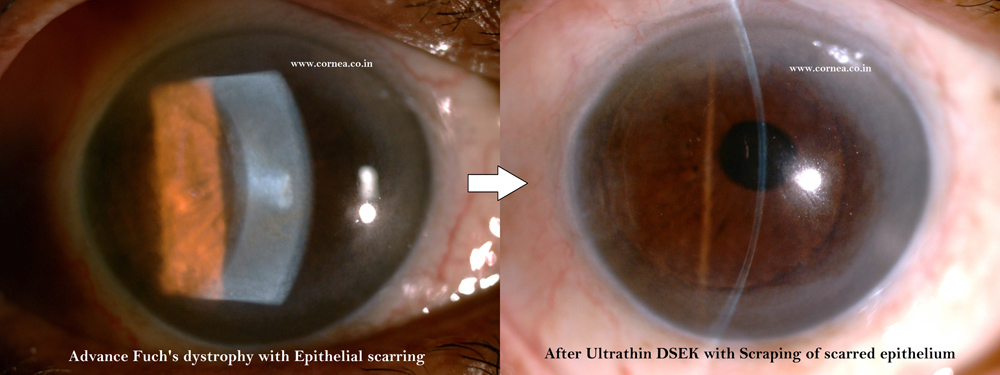1. What is Fuchs’ Dystrophy (Pronounced as “FOOKS”)
Fuchs’ corneal dystrophy is a hereditary eye disease with symptoms that often become noticeable after the age of 50. Ultimately it may cause progressive loss in vision and pain. The complete name is Fuchs’ Endothelial Corneal Dystrophy (FECD).
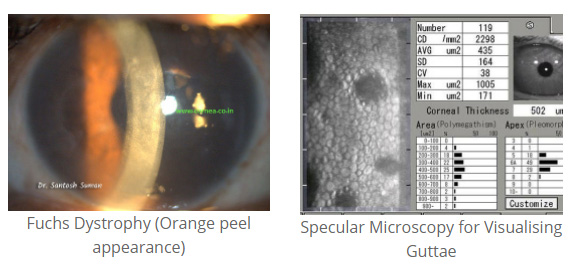
2. What are the signs and symptoms of Fuchs’ Endothelial Corneal Dystrophy (FECD)?
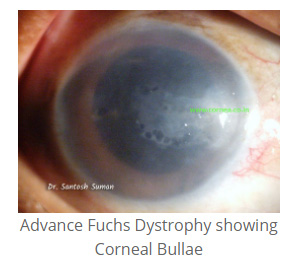 Early stages of Fuchs’ may be asymptomatic. As the disease progresses, you may have blurriness of vision in the morning. In advance stage, pain starts when corneal bullae (retained fluid in the cornea) ruptures. Vision also drops down as the disease progresses.
Early stages of Fuchs’ may be asymptomatic. As the disease progresses, you may have blurriness of vision in the morning. In advance stage, pain starts when corneal bullae (retained fluid in the cornea) ruptures. Vision also drops down as the disease progresses.
3. If I have Fuchs’ Dystrophy, will I definitely need a corneal transplant?
No. There is great variation in the severity of Fuchs’ dystrophy and some never need a transplant at all.
4. What kind of doctor can diagnose me with Fuchs’?
Fuchs’ Dystrophy is not an easy disorder to diagnose properly. If you are concerned about Fuchs occurring in your family, you need to see a Cornea Surgeon.
5. Is there anything I can do to prevent my Fuchs’ Dystrophy from getting worse?
No, nothing that we know of. However, your Cornea Surgeon may be able to take to help alleviate your symptoms (make you feel better).
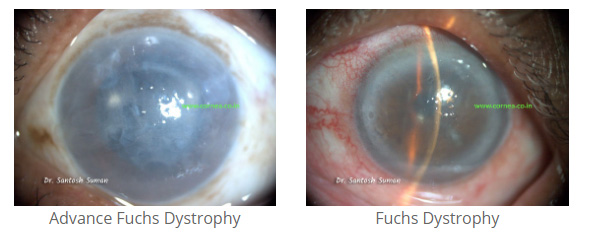
6. Is Fuchs’ dystrophy genetic? Where did I get Fuchs’ Dystrophy from? My parents don’t have any such problem.
Not all Fuchs’ Dystrophy is inherited from parents. There are some sporadic cases, in which there is no family history of Fuchs dystrophy
7. If I have Fuchs’ Dystrophy, will my children get the disease?
If you have Fuchs’ and one of your parents also had the disease, each of your children has approximately 50% chance of having Fuchs. If you have Fuchs’, but neither of your parents had the disease, there is an unknown risk to each of your children
8. My father wore glasses all his life. Does that mean he probably had Fuchs’ Dystrophy?
No, Wearing glasses has nothing to do with Fuchs’.
9. How often should I see a Cornea Surgeon?
If you have been diagnosed with FECD, your Cornea Surgeon can tell you how often you should be seen.
10. Why is my vision worse in the morning?
Toggle content gWhen you are asleep, your eyelids are closed and the moisture is not allowed to evaporate from the cornea. That is why in the morning your cornea has maximum moisture (edema) and you have blurry vision. After you wake up and start doing your daily activities, the water evaporates from the surface of the cornea, making your vision clearer.oes here, click edit button to change this text.
11. Why can’t I see as well on days with high humidity?
For the same reason that you can’t see as well when you first wake up in the morning. When the humidity in the outside air is high, the water won’t evaporate as quickly from the surface of your cornea. (Just like your clothes don’t dry as quickly on a humid day.)
12. What type of corneal transplant is required in Fuchs’?
Because only the innermost layer of cornea (i.e, Endothelium) is defective in Fuchs, only this layer needs to be removed and replaced. The surgery is called DSEK (Descemets Stripping Endothelial Keratoplasty)
